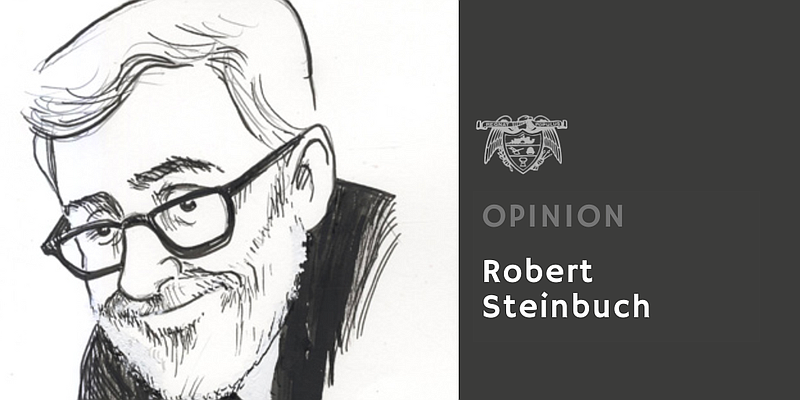I readily reiterate below that my views expressed here don't reflect those of my school. That faculty and administrators shouldn't endorse political positions on behalf of universities was once self-evident.
The absence of official viewpoints bedrocks intellectual tolerance and academic freedom in higher education. The left was once the vanguard of this notion. Now, they've tragically lost their way, asserting various views as verboten violence--in what presents better as a Monty Python skit than learned discourse--on the one hand, and proclaiming political preferences as institutional values and interests on the other. The solipsism cannot be overstated.
Higher-education institutional values and interests are few and entirely procedural--a commitment to free speech, enlightenment, and tolerance towards all ideas (even incorrect ones).
Any expression beyond these core notions as official positions constitutes hijacking of higher education. Sadly, this occurs far too often.
My colleague Josh Silverstein recently reminded my faculty that, after the election of Donald Trump, the then-law dean, Michael Hunter Schwartz, wrote students and faculty offering counseling.
Silverstein further elucidated as follows: "[While] Dean Schwartz did not say that he abhors the views of all Republicans ... he did say that he abhors the views of some. And that is precisely how numerous conservatives and Republicans understood the email. (As did many liberals, including me.) Indeed, several conservative students immediately forwarded this email to Arkansas Republican elected officials. Those officials were furious and made their views known to Dean Schwartz and other members of the law school and university communities."
I was out of state, caring for my mother, when this occurred. I too was shocked by the email.
When the then-dean wrote his message to law-school listservs with the trappings of his position--including his decanal title bolded in his executive signature block--his actions imprinted the school's imprimatur on his expression of political views.
And a "mere four days after sending the email below, Dean Schwartz resigned, effective the end of the school year," noted Silverstein.
Had the dean communicated unofficially using different means, that would've been unremarkable. After all, First Amendment ideals don't exist to protect banal pablum characteristic of nursery rhymes and greeting cards. Rather, free speech shares guardianship of both the controversial and the foolish--and the then-dean's comments certainly demonstrated no shortage of the latter.
Similarly, when President Trump restricted transgender-military service, a law-school dean in another state officially communicated his disapproval and efforts at "amelioration."
Amelioration for a policy having nothing to do with legal education--what does that even look like?
I didn't endorse the trans-ban and opposed the military-gay ban from years prior. I always thought woefully circular the posited argument that potential blackmail of gay-military members justified their exclusion. After all, these proud warriors only had to hide their sexual orientation in the first place--creating the secrecy vulnerable to extortion--because of the proscription. (That's a paradox worthy of The Next Generation's finale.)
Nonetheless, why should any school have an institutional position regarding military policy, with the dean deciding that stance, no less? If that's subject to official opprobrium, why not also, say, abortion and gun rights?
Moreover, I know of no administrators declaring conservative values for mainstream academic institutions. That's why we see a near perfect mapping of leftist politics with stated-institutional positions--evidencing that these expressions of entity ethics are embellished-individual preferences of those with engorged views of their roles.
It's hard to overcome leftist-academic hypocrisy as progressive professors palpitate over preferred populations' "under-representation" in particular professions, while these same liberals stand decidedly dumb despite the dearth of conservatives in higher education.
Don't get me wrong. I actually want academics to opine on policy more, because, as I discussed recently, the three academic components of teaching, scholarship, and public service work in unison. These opinions just shouldn't be embossed with a counterfeit Great Seal of the Realm.
My 40 law-review articles and essays and the two editions of my Freedom of Information Act treatise not only undergird my over 100 columns and hundreds of media interviews--my varied commentaries allow me to disseminate dense scholarship popularly along with my policy recommendations.
In ensuring I'm not presenting official-school positions, however, I grant license to colleagues to do the same when we disagree. And, rest assured, we often disagree.
Further, as my examples imply, the problem rests more with administrators, who sometimes view their leadership roles with outsized scope. One dean agreeing with the restraint encouraged here told me he's not interested in being a moralizer-in-chief.
Indeed, freeing administrators from this recent role engrossment allows them to focus on their core responsibilities: getting the trains to run on time and mapping a course for growth. Some call the latter "vision." That's fine, as long as that somewhat lofty descriptor doesn't cause macrocephaly.
We can take or leave individuals moralizing. Everyone has opinions. Sermonizing from institutions of higher education through official commentary, in contrast, smacks of indoctrination and oppression. History has well documented the significant dangers of those.
This is your right to know.
Robert Steinbuch, professor of law at the Bowen Law School, is a Fulbright Scholar and author of the treatise "The Arkansas Freedom of Information Act." His views do not necessarily reflect those of his employer.
